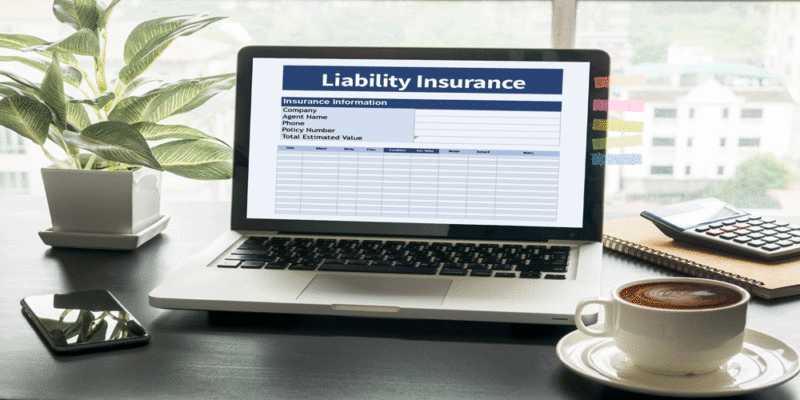
Understanding Business Liability Insurance
Running a business comes with risks, but liability insurance helps you be ready for what may happen. No matter if you own a small startup or take care of a big company, the right type of business insurance gives you peace of mind. Liability insurance keeps your business safe from legal costs and money problems if someone makes an unexpected claim. It is like a safety net that lets you focus on your work without always worrying about losses or claims. Let’s see how this important coverage can help protect your business.
Business liability insurance can help keep your company safe from losing money if there are sudden claims of negligence, property damage, or injuries. It is often part of a larger business insurance policy. This type of coverage can help protect your business from legal bills and pay-outs. With liability insurance, you can focus on what you do best while feeling more secure.
General liability insurance is the backbone of many business insurance policies. It is a type of coverage lots of people look for. When it is combined with other coverages, it creates a safety net for your business. This mix can be set up the way you want, so it helps meet your needs no matter what your business is. Business insurance can work for almost any type of company, large or small.
Key Features of Business Liability Insurance
A good general liability policy helps keep your business safe from losing money. One big part is liability coverage. This covers things like when a customer gets hurt or their property gets damaged. That way, if something happens to people who are not working at your business, it will not risk your business assets.
You can also pick different coverage options to fit what the business needs. For example, you may add coverage like cyber liability or professional indemnity to your general liability policy if your workplace needs it. But there are always exclusions listed, which means some things are not covered. Every policy will say clearly what these are.
>>> Covers legal expenses and damages from third-party claims.
>>> Tailored options for businesses with unique requirements.
>>> Clearly defines standard inclusions and exclusions.
All these features help protect your company from money problems. This means you will have a strong start if you want to grow.
Types of Coverage Available
Businesses can choose from several types of liability insurance tailored to their needs. General liability insurance provides broad protection against third-party claims, such as accidental injuries or property damage. It’s essential for nearly every business.
On the other hand, professional liability insurance covers claims of errors or omissions made while providing professional services. Cyber liability insurance is crucial for businesses storing sensitive customer data, shielding them from risks like data breaches and cyberattacks.
Finding the right cover isn’t always easy and rushing into the wrong policy can leave you at risk, or paying too much. Insuring your business through an established insurance broker, can help identify the right solution for you.
Why UK Businesses Need Liability Insurance
Liability insurance is a must-have for any business in the UK. The law says that you must get it, especially if you have people working for you. This type of cover helps you stay on the right side of the rules. It also protects what you own.
Anything can go wrong at any time. Your team might get hurt, or a customer could blame you for a mistake. That is why liability insurance is so helpful. It lets your business face these issues without big money problems. When your cover matches the law, you do not need to worry as much. You can give more time to grow and improve your business.
Legal Requirements and Compliance
Understanding legal rules about liability insurance is important for any UK business. If your company has one or more workers, you must have employers’ liability insurance by law. This makes sure that workers hurt on the job get the right payment for their injuries.
The type of business you run also helps decide what insurance coverage you need. Companies in areas such as construction or healthcare often face unique risks. These businesses may need higher insurance limits than others. While some coverage options are not legally required, things like product liability or professional indemnity insurance can be very important, especially if you deal directly with clients.
The cost of business insurance will change a lot based on your number of employees and your physical assets. For instance, if you have a larger company with more people and equipment, your bills might be higher because there is more that can go wrong. Following these legal rules not only keeps your business safe, but also helps people see you as trustworthy.
business insurance, liability insurance, number of employees, type of business, physical assets, unique risks, coverage options
Common Risks Faced by Businesses in the UK
Businesses in the UK face many risks, so they need liability insurance to help with any money problems that come up. There are often claims of negligence. This means people may say you did not do what you agreed to do. This is common for professionals.
Property damage comes up a lot. It can happen to your building or things that belong to your clients. Also, with how much people use computers now, there are more risks from data breaches and cyberattacks. If these happen, companies can face legal claims or damage to their good name.
>>> Accusations of negligence from customers.
>>> Costs that come from damage to other people’s property.
>>> Medical expenses if someone gets hurt while on your property.
>>> Cyber issues, such as data leaks or hacking.
When you know about these risks, you can pick the right liability coverage for your business. This helps keep your work safe and protects you and your business.
Assessing the Liability Insurance Needs of Your Business
Looking at the liability insurance needs of your business starts with finding out the unique risks it faces. Every business will have its own risk profile. This depends on the type of services it gives and how it works every day.
It is important to know the type of coverage you need. For instance, a doctor or nurse might need professional liability insurance more. An IT company may want to look more into cyber liability coverage. When you take a close look at these needs, you can make sure your liability coverage fits your business. This helps protect you better.
Factors That Influence Insurance Requirements
There are several things that decide what kind of liability insurance a business should have. The type of business is one of the first things to look at. For example, if someone works as an IT consultant, they will need to think about cyber risks. A retail shop, on the other hand, should look into general liability coverage.
Physical assets are also very important. If a business owns a lot of property or has big equipment, it must get insurance that covers these assets. The number of employees also matters. More people on the team mean more risk for workplace injuries or other claims, so liability insurance should fit the size of the team.
The value of business assets can make a big difference, too. When a business owns things that are worth a lot, there can be a bigger loss if something goes wrong. Looking at all of these things together helps make sure your liability coverage fits well with what your business needs and gives good protection.
How to Evaluate the Right Level of Cover
Choosing the right amount of liability insurance means looking closely at the risks that your business may face. You need to know your coverage options. Some business insurance plans come with basic cover. Some give you extra options called riders.
Look at the exclusions in your business insurance policy. Learn what the plan will not pay for. This shows you the gaps, so you know when you need more cover. Think about these points as you check your policy:
>>> Assess your unique industry risks.
>>> Compare various types of coverage, like general and cyber liability.
>>> Consult with insurance professionals to identify optimal protection.
>>> Regularly review policies as your business evolves.
If you look at these things, you help make sure your business insurance matches what you need for your work.
Understand Business Liability Insurance
To sum up, it is important to understand business liability insurance if you want to protect your company’s future. This type of insurance gives your business peace of mind. It keeps your organisation safe from the trouble that can come with unexpected legal claims. It also helps you stay in line with the rules that you have to follow when you run a company.
Every business is different and faces its own unique risks. That is why you need to look at what your company does and pick the coverage that fits your needs best. Doing this can make your foundation stronger and help your business grow over time.
Do not leave your company open to big risks. If you want advice on liability insurance or want to talk about the unique risks your business might face, get in touch with Weir Insurance Brokers now. We offer a free consultation to help you make the best choice for your company’s protection.
Key Highlights
Business liability insurance helps your company avoid losing money when there are third-party claims related to things like property damage, claims of not doing your job right, or costs for medical expenses.
General liability insurance is the type of business insurance that is seen the most. It gives your business the main kind of protection you need.
Coverage options come in different forms. You can choose professional liability insurance, cyber liability, or commercial auto insurance depending on what type of business you run.
Liability insurance keeps your business assets safe. It helps give you peace of mind during uncertain times.
Picking the right type of coverage means you will be covered for the unique risks your kind of work or industry may face.
Tailored business insurance can work for small businesses, big companies, and any size that is in between. Each policy can be adjusted to fit what you need.


